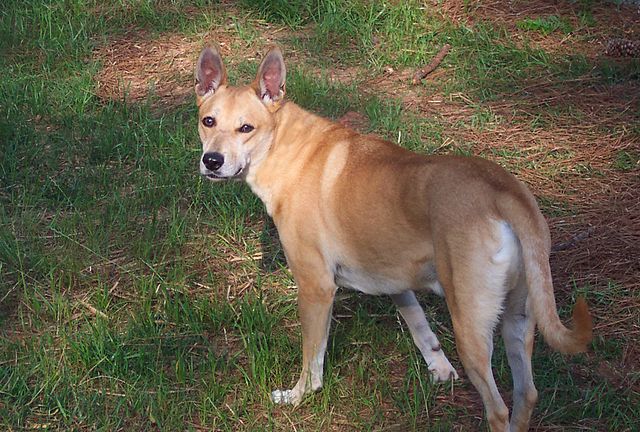


The Carolina Dog, also known as the American Dingo, is a rare and primitive breed that is native to the southeastern United States. Known for its wolf-like appearance and natural hunting instincts, this breed is highly intelligent, independent, and has a strong prey drive. Carolina Dogs were originally wild dogs but were later domesticated and have become a popular choice for those seeking an active and intelligent companion. They are loyal, energetic, and require regular exercise and mental stimulation.
The Carolina Dog is believed to be one of the closest descendants of ancient wild dogs that once roamed North America. The breed's history dates back thousands of years, with evidence suggesting that these dogs lived alongside Native American tribes and were used for hunting and guarding. Carolina Dogs were rediscovered in the 1970s by Dr. I. Lehr Brisbin, who began studying and documenting these wild dogs that lived in the forests and swamps of the southeastern United States. Over time, these wild dogs were bred with domesticated dogs to form the Carolina Dog that we recognize today.
The Carolina Dog is a medium-sized dog with a well-balanced, athletic build. They typically weigh between 30 to 44 pounds and stand about 17 to 24 inches tall at the shoulder. Their coat is short, dense, and typically comes in colors like tan, red, yellow, or black and tan. The Carolina Dog has a narrow, wedge-shaped head with a pointed snout and erect, triangular ears. Their eyes are almond-shaped and dark, giving them an alert and intelligent expression. The tail is long and typically carried in a sickle shape over their back. These dogs have a lean and muscular body that allows for speed and agility, ideal for hunting and running in the wild.
Carolina Dogs are known for their independent and reserved nature. They are often wary of strangers and may be shy or aloof at first. However, they are deeply loyal to their families and can be very affectionate with those they trust. They are intelligent, independent, and can sometimes be stubborn, which makes training a bit challenging. They are not typically overly social and may prefer to be alone or in small groups. Despite their wild heritage, they are generally good with children and can make excellent family pets, though they do require proper training and socialization from an early age.
Carolina Dogs are active and energetic, with a natural instinct for running and hunting. They need plenty of exercise to stay healthy and happy. Daily walks, runs, and opportunities to explore are essential. They enjoy activities such as fetch, agility training, and playing in secure, fenced areas. Since they have a high prey drive, it is important to provide them with plenty of mental stimulation to prevent boredom, which can lead to undesirable behavior. This breed is not suited to apartment living unless they receive ample outdoor exercise, as they need space to run and explore.
Training a Carolina Dog can be challenging due to their independent nature. They are intelligent and learn quickly, but they may not always be eager to please like some other breeds. Positive reinforcement methods, such as treats and praise, work best when training a Carolina Dog. Early socialization is crucial to help them become comfortable with other animals, people, and various environments. Without proper socialization, Carolina Dogs can become overly shy or defensive around strangers. They require an experienced and patient owner who understands the breed's strong-willed temperament.
The Carolina Dog is generally a healthy breed with few major health concerns. However, like all breeds, they can be prone to certain conditions, such as hip dysplasia, hypothyroidism, and ear infections, particularly because of their erect ears. Regular veterinary check-ups and a balanced diet are essential to keep them in good health. Their short coat requires minimal grooming, but regular brushing can help to remove loose hairs and keep the coat shiny. It is important to clean their ears regularly and trim their nails as needed. Carolina Dogs also benefit from regular dental care to maintain oral health.
The average lifespan of a Carolina Dog is around 12 to 15 years. With proper care, including a nutritious diet, regular exercise, and routine veterinary visits, many Carolina Dogs live long, healthy lives. This breed's natural hardiness and adaptability contribute to its longevity, especially in active households where they receive the mental and physical stimulation they need.
© copyright Dog Compendium 2024 - 2026